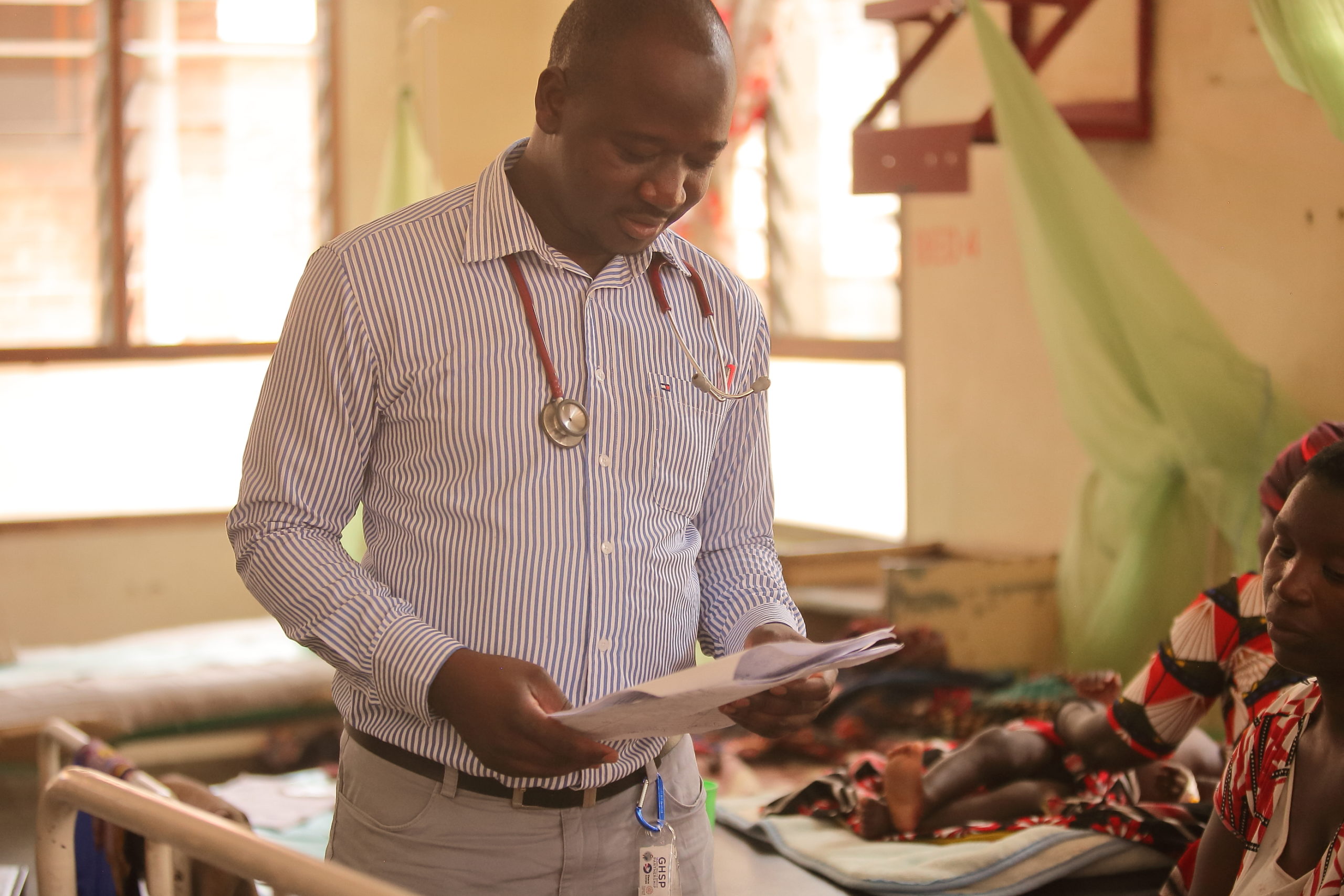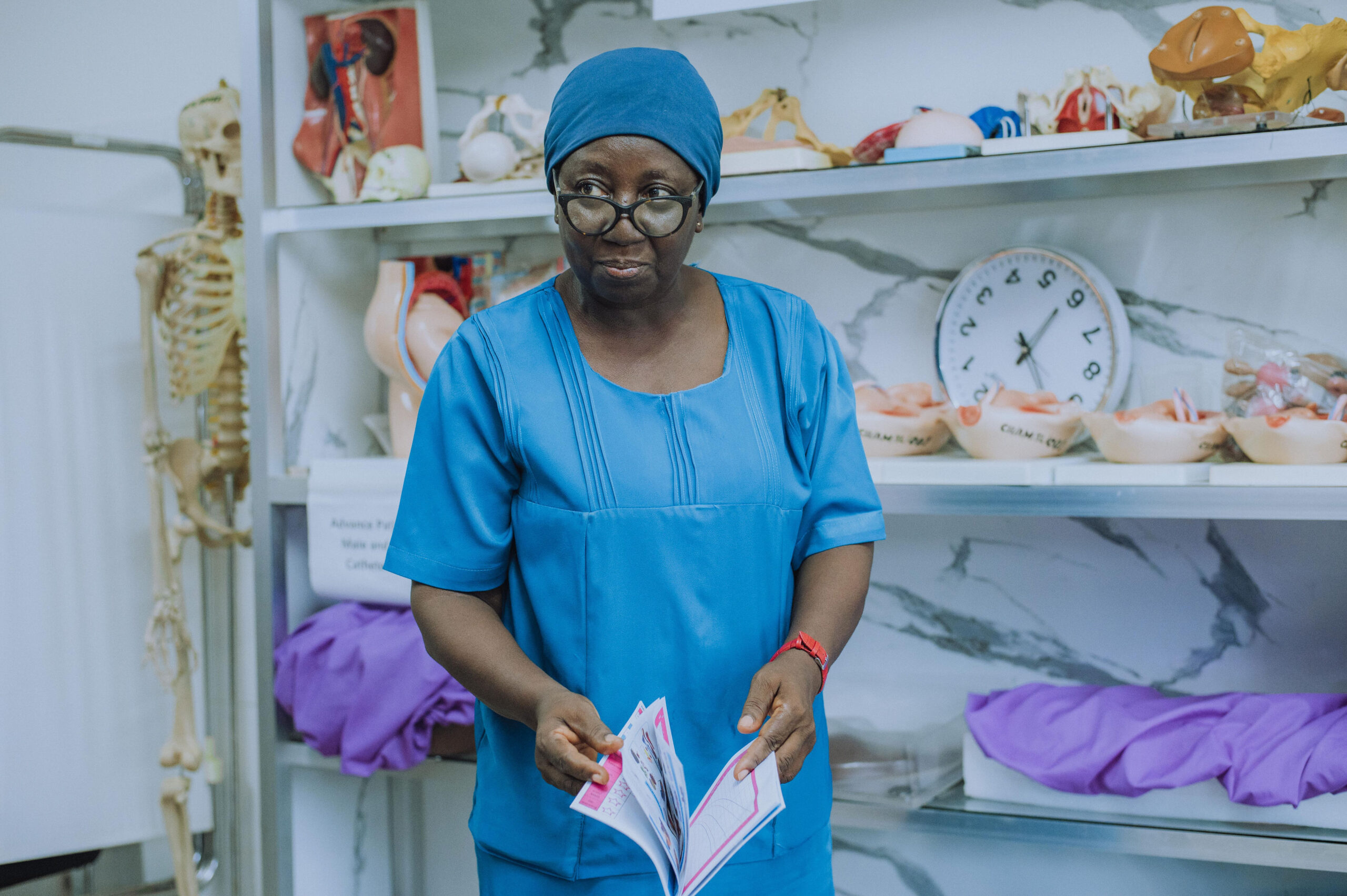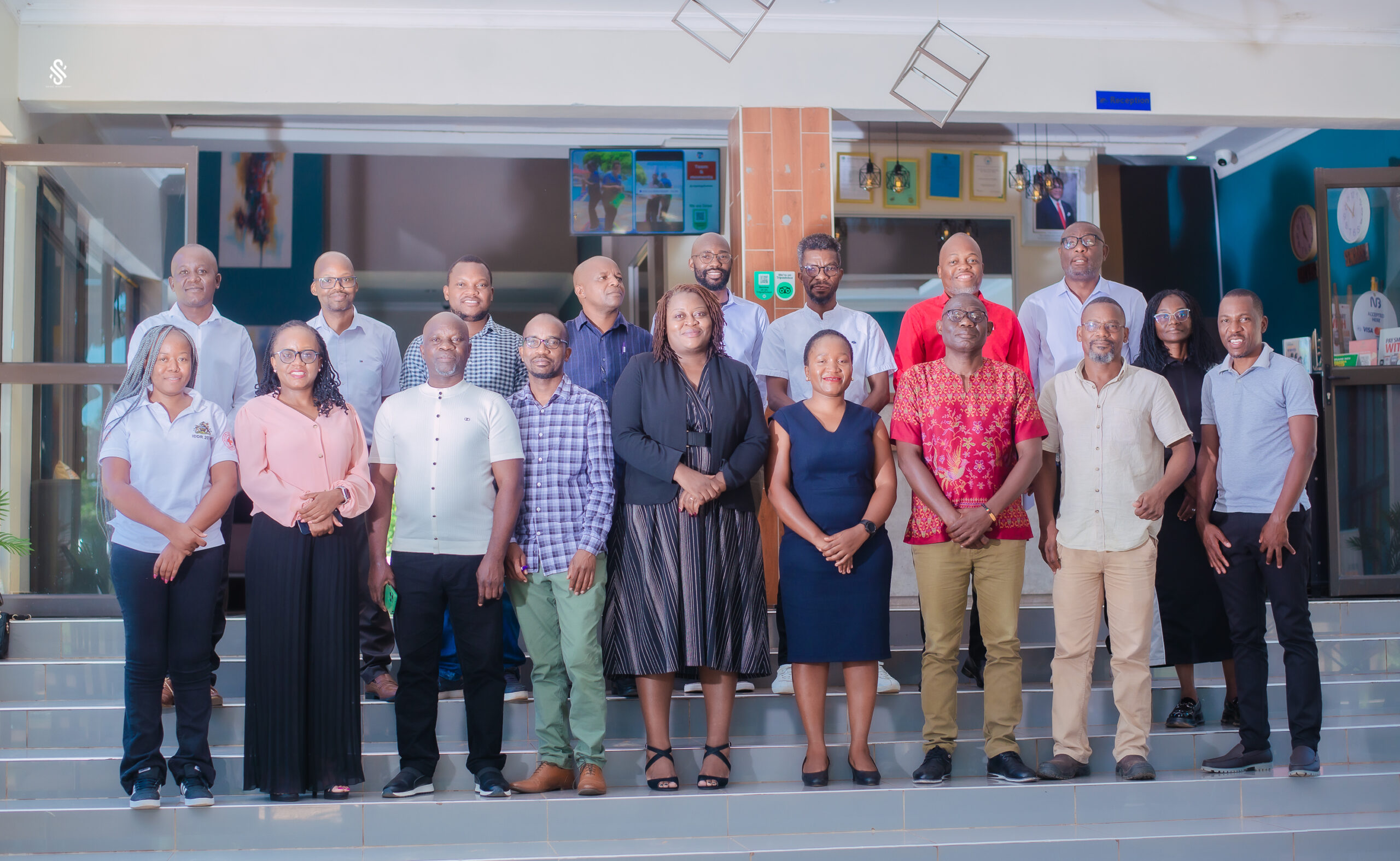
How Malawi’s first generation of family medicine physicians are advancing high-quality, versatile patient care
Photo above: Dr. Modai Mnenula, one of the first family medicine graduates in Malawi, cares for a patient at Mangochi District Hospital, 2019.
Since 2015, Seed Global Health has been partnering to build a family medicine program from the ground up in Malawi, a country where there are just two physicians per 100,000 people, one of the lowest rates of any country in the world.
Acute shortages of physicians, nurses, and midwives, and poor access to healthcare leads to countless preventable deaths each and every year in Malawi. Yet, there are signs of cautious improvement happening – in part, because of the growing role a new generation of emerging family medicine doctors can have in providing care.
Under the ambitious stewardship of Health Minister Khumbize Chiponda, Malawi’s national government is partnering with Seed to develop the country’s first family medicine program at Kamuzu University of Health Sciences – seeking to transform the way care is delivered and improve outcomes for patients nationwide.
Beginning in 2018, Seed also began working with Providence—one of the largest nonprofit health systems in the United States—to bolster a sustainable pipeline of family medicine specialists with the aim of increasing access to high quality primary care in the largely rural country.
Currently, the majority of the Malawian population access their health services from primary care provided in health centers and district hospitals. While this has the advantage of being cost effective because it is designed for high volumes of patients and helps increase access to health services, health systems often struggle in having enough trained staff to take on patient case load.
To handle the unique cases a district hospital experiences, each facility needs at minimum a pediatrician, an internist, a surgeon, and an obstetrician. Yet with the huge shortfall in physicians available in Malawi, most facilities don’t have all of these specialists: they either can’t afford to or the doctors are not available.
In comparison, family medicine doctors bring a highly versatile skill set and can accommodate about 80% of the cases a district hospital might see, referring more advanced cases to sub-specialists. Furthermore, family doctors are known to deliver the best outcomes, at the lowest cost with the greatest patient satisfaction – because they are focused on the person, rather than the disease, with better continuity of care, and patient-led care.
Research suggests family doctor-led primary health care teams – if well trained and resourced – will help countries in Africa to achieve Universal Health Coverage. Not only can these doctors treat cholera, but they can also help deliver babies during a difficult birth, diagnose COVID in mothers attending a prenatal clinic, administer vaccines, and address a broad range of medical issues across any sub-population.
Recognizing the vital role family medicine can have to transform care in Malawi, Seed has developed a ten-year plan in partnership with the Ministry of Health and institutions, to train two family medicine doctors for each of 28 district hospitals across the country.
To seed the foundation of this program, two faculty members from US hospitals are working long-term rotations in Malawi to support the training of physicians – through improving the quality of classroom teaching and clinical training for undergraduates and postgraduate students at the Kamuzu University of Health Sciences – which is the only medical school in Malawi. These faculty placements are in part generously funded by Providence.
As more Malawian family medicine physicians graduate into service, future training will be taken over by local physicians, rather than physicians from abroad.
This past year, Seed and its partners also supported the establishment of a first-of-its-kind family medicine clinic at Mangochi District Hospital. The clinic runs twice a week and is staffed by the family medicine faculty or by post-graduate trainees under the supervision of faculty. Providence has also funded the construction of a medical skills lab on the Mangochi District Hospital grounds, where over 200 learners per year will now be able to practice clinical skills in a simulated environment.
Ultimately, the family medicine specialty clinic will serve as a support for difficult cases, while also bolstering the capacity of the regular hospital outpatient department to take care of such cases, at first in a follow up capacity, and eventually more fully in diagnosis and treatment.
In another endeavor to increase clinical capacity at Mangochi District Hospital, Seed has joined Providence in providing new high-tech, low-cost technology to aid in diagnosis with five Point of Care Ultrasound (POCUS) machines. Their portability means they are small enough to fit in a clinician’s pocket and also allow ultrasound to be used in locations previously considered too remote. Given the resource constraints in Mangochi, the availability of this technology has the potential to transform care and outcomes for patients. Providence has funded a training of trainers that will take place this spring, and include 30 registrars and clinicians, who will each, in turn, train another 20 clinicians, thus exponentially increasing clinician capacity to use the technology.
These changes are already beginning to have an impact and change the way care is delivered for ordinary Malawians. Key to this success is investing in the health workforce. A well-trained, well-distributed, and well-resourced health workforce is the foundation of any health system.
Seed and its partners will continue to advocate for large-scale, transformative investments in health workers to help close the gap in the availability of quality healthcare in Africa – until we build health systems which you or I would be happy to send our child too.
About Providence
Seed’s family medicine faculty placements are in part generously supported by Providence, one of the largest nonprofit health systems in the United States. Through the Global & Domestic Engagement department, Providence annually funds up to 14 US based Family Medicine residents from their network of residency programs to support and mentor clinical learners in Mangochi. These four-week rotations deepen the Family Medicine learning of students and registrars in Mangochi while strengthening the US residents’ care delivery skills for underserved populations when back in the United States. To further ensure that this learning is bi-directional, Providence funds two-three Malawian Family Medicine registrars to participate in six week family medicine immersion at the Swedish Family Medicine program in Seattle.

